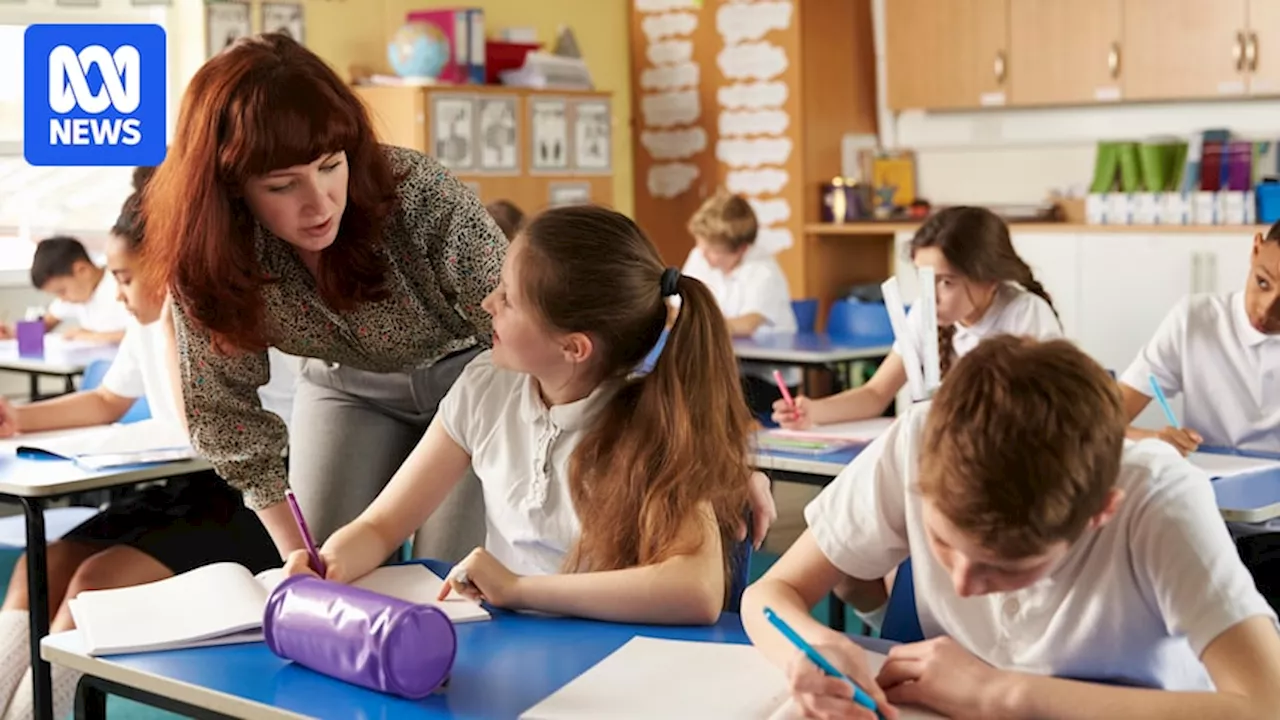National and international testing reveals a concerning trend of declining academic performance among Australian students. Leading experts warn that a significant number of students are not meeting basic literacy and numeracy benchmarks, potentially impacting their future prospects. The article explores the reasons behind this crisis, highlighting the need for improved teaching practices and a renewed focus on the value of education.
As children return to the classroom, leading experts are urging parents to place more value on education as long-term trends reveal hundreds of thousands of students have been left behind. National and international testing of Australian students has documented a consistent decline over the past two decades, but there are high hopes that improved teaching practices will stop the rot.
The most recent NAPLAN tests, a national exam on the basic literacy and numeracy skills needed to navigate life, show one-third of students are not meeting minimum benchmarks. That's about 450,000 students across the country whose test results suggest they are not on track in skills that are crucial for their wellbeing and their future, said Grattan Institute education researcher Nick Parkinson. Ensuring students are proficient in literacy and numeracy is a core promise of our education system: a promise it's failing to deliver for too many children.Crucially, experts are warning this failure can follow children for the rest of their lives, regardless of whether they plan on further study. Studies have shown students without these core skills are likely to struggle with employment and living fulfilling lives — and rarely catch up to their peers. Only around one in five children who don't meet the minimum standard in year 3 ever go on to achieve at a proficient level during their schooling years, said Glenn Fahey, the education policy director at the Centre for Independent Studies. Those poor NAPLAN results have also been reflected by international testing where Australia lags behind other developed countries.Australia's students from language backgrounds other than English (LBOTE) are one of the few groups performing well and are consistently ahead of their non-immigrant peers. Unlike almost any other country, Australia's migrant children outperform their peers — even in early assessment of English language conventions, said Fahey. Students from LBOTE are outperforming their peers from English-speaking households on several metrics, Mr Parkinson said. This represents a larger group of students than you might think: About one-third of students in New South Wales and Victoria, Australia's two biggest school systems, are from LBOTE. These students are often — but not always — from families that strongly value education, Mr Parkinson said. Clearly, there needs to be some more work done to communicate the importance of school education and learning across the broader Australian community.There are also hopes wider adoption of improved teaching styles will help shift Australian students' results. Last year New South Wales, Victoria and Tasmania became the latest states to change teaching styles to a practice known as direct instruction or explicit teaching. This puts the teacher in control and involves clearly breaking down and explaining concepts to students. This method has been proven effective for teaching both literacy and numeracy, especially for struggling students. In contrast, inquiry-led learning prioritises the role of the child in their learning and focuses on exploration and problem solving. Experts say inquiry-led learning can leave disadvantaged children behind and have blamed it for declining academic skills.The federal opposition has demanded the government move faster and mandate its teaching in all classroom practices. We know that teaching quality is the number one in-school factor for improving student learning, Mr Parkinson said. Recent shifts to adopt evidence-based approaches and ditch fads will make a big difference to Australian students. Explicit teaching, which uses the latest science on cognitive load to guide learning, involves the teacher leading the class and regularly testing students to ensure they're taking in lessons. It sits in contrast to inquiry-based or student-directed learning, where children are encouraged to use their curiosity and be more engaged in the learning process. However, many education academics and some teachers' unions remain champions of inquiry-led learning, meaning the 'reading wars' persist. What NAPLAN data now convincingly shows is that schools who are beating the odds are often committed to high-quality, science-driven, sophisticated explicit teaching, Mr Fahey said.While the remedy is there, these experts warn there are entrenched challenges from 'naysayers' and 'sceptics' — as well as the practical challenges of driving major reforms across Australia's 10,000 schools. Schools are complex organisations that are busy places filled with dedicated staff, but many are stretched by the day-to-day challenges they face, which can put major transformational teaching change in the too-hard basket, Mr Fahey said
EDUCATION LEARNING NAPLAN AUSTRALIAN STUDENTS TEACHING METHODS LITERACY NUMERACY STUDENT PERFORMANCE EDUCATIONAL CRISIS
Australia Latest News, Australia Headlines
Similar News:You can also read news stories similar to this one that we have collected from other news sources.
 Sam Konstas' Quick Learning Impresses Australian CoachAustralian cricket coach Andrew McDonald praises young opener Sam Konstas for his rapid learning and ability to thrive in the company of experienced players like Steve Smith. McDonald acknowledges Konstas' intense training regimen, suggesting it could be beneficial for his development despite the increased workload for coaches.
Sam Konstas' Quick Learning Impresses Australian CoachAustralian cricket coach Andrew McDonald praises young opener Sam Konstas for his rapid learning and ability to thrive in the company of experienced players like Steve Smith. McDonald acknowledges Konstas' intense training regimen, suggesting it could be beneficial for his development despite the increased workload for coaches.
Read more »
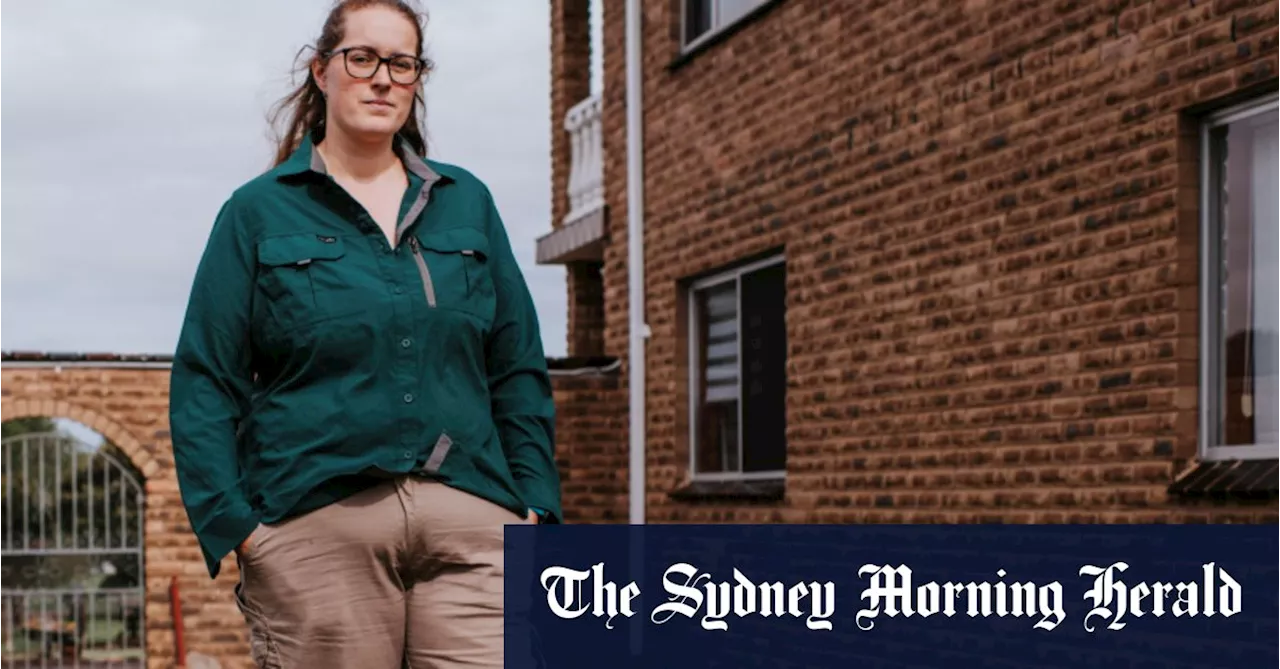 PhD Stipend Too Low, Deterring Australian StudentsA new report highlights the declining number of Australian students pursuing PhDs, attributing it to low stipends and financial strain. Katherine Warwick, a Western Sydney University PhD student, shares her experience of budgeting carefully on a $30,000 annual stipend and the mental and physical toll it takes. Universities Australia calls for an increase in PhD stipends to at least $36,000 to make research degrees more accessible and attract talent.
PhD Stipend Too Low, Deterring Australian StudentsA new report highlights the declining number of Australian students pursuing PhDs, attributing it to low stipends and financial strain. Katherine Warwick, a Western Sydney University PhD student, shares her experience of budgeting carefully on a $30,000 annual stipend and the mental and physical toll it takes. Universities Australia calls for an increase in PhD stipends to at least $36,000 to make research degrees more accessible and attract talent.
Read more »
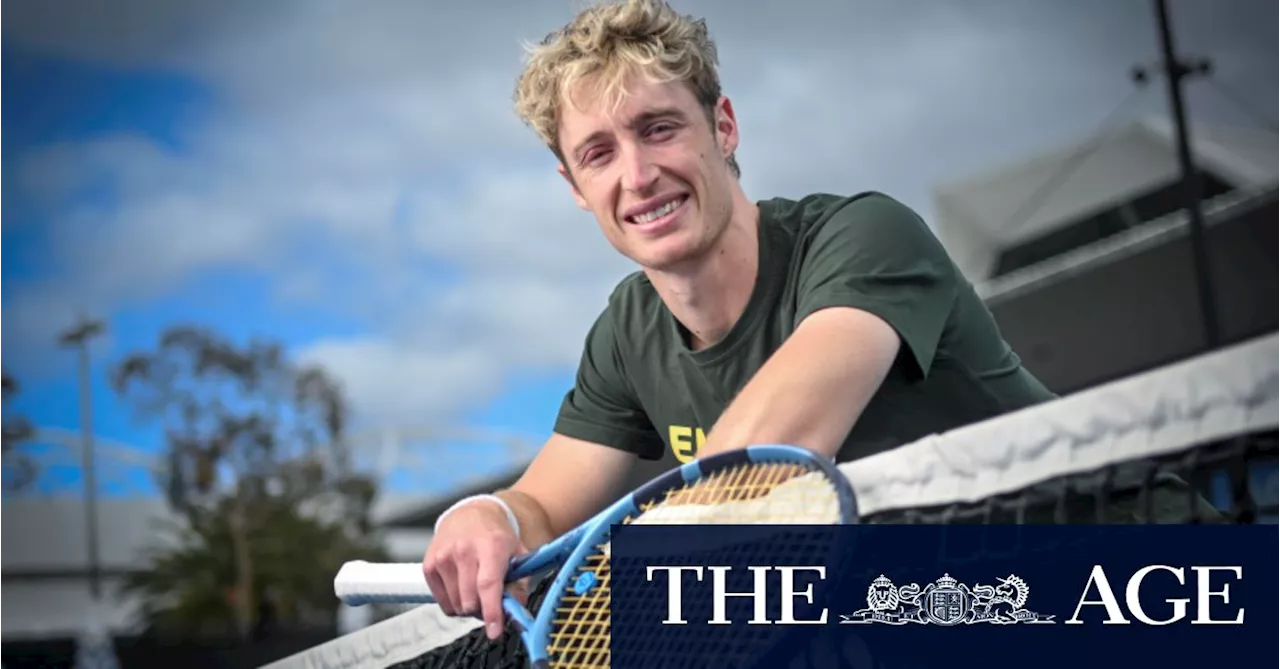 Australian Tennis Players Vie for Australian Open QualificationAustralian players are gearing up for the Australian Open qualification rounds, aiming to secure a spot in the main draw. Marc Polmans, one of 15 wildcard recipients, highlights the intense competition and the physical demands of the qualifying process.
Australian Tennis Players Vie for Australian Open QualificationAustralian players are gearing up for the Australian Open qualification rounds, aiming to secure a spot in the main draw. Marc Polmans, one of 15 wildcard recipients, highlights the intense competition and the physical demands of the qualifying process.
Read more »
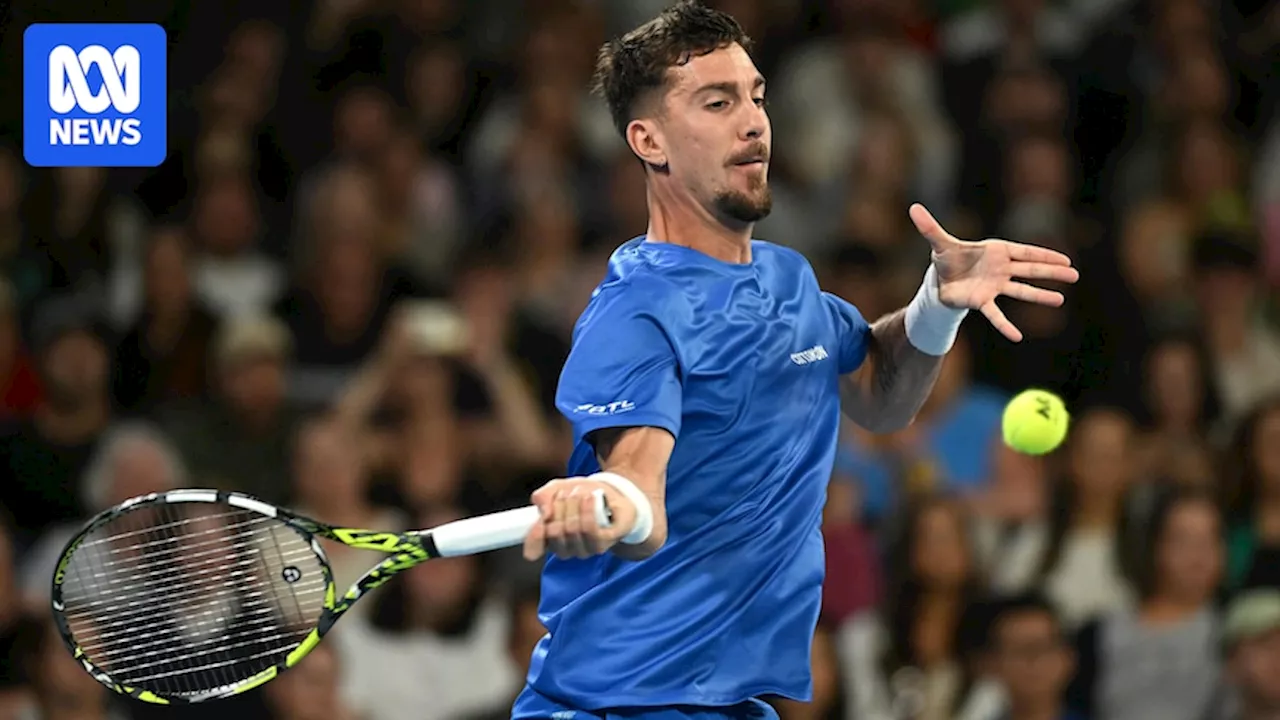 Kokkinakis Hopes to Ignite Australian Comeback at Australian OpenThanasi Kokkinakis faces Jack Draper in a battle of the wounded at the Australian Open, hoping to spark a resurgence for Australian players after a string of early exits. The match takes place amidst weather disruptions and a battle for momentum on the court.
Kokkinakis Hopes to Ignite Australian Comeback at Australian OpenThanasi Kokkinakis faces Jack Draper in a battle of the wounded at the Australian Open, hoping to spark a resurgence for Australian players after a string of early exits. The match takes place amidst weather disruptions and a battle for momentum on the court.
Read more »
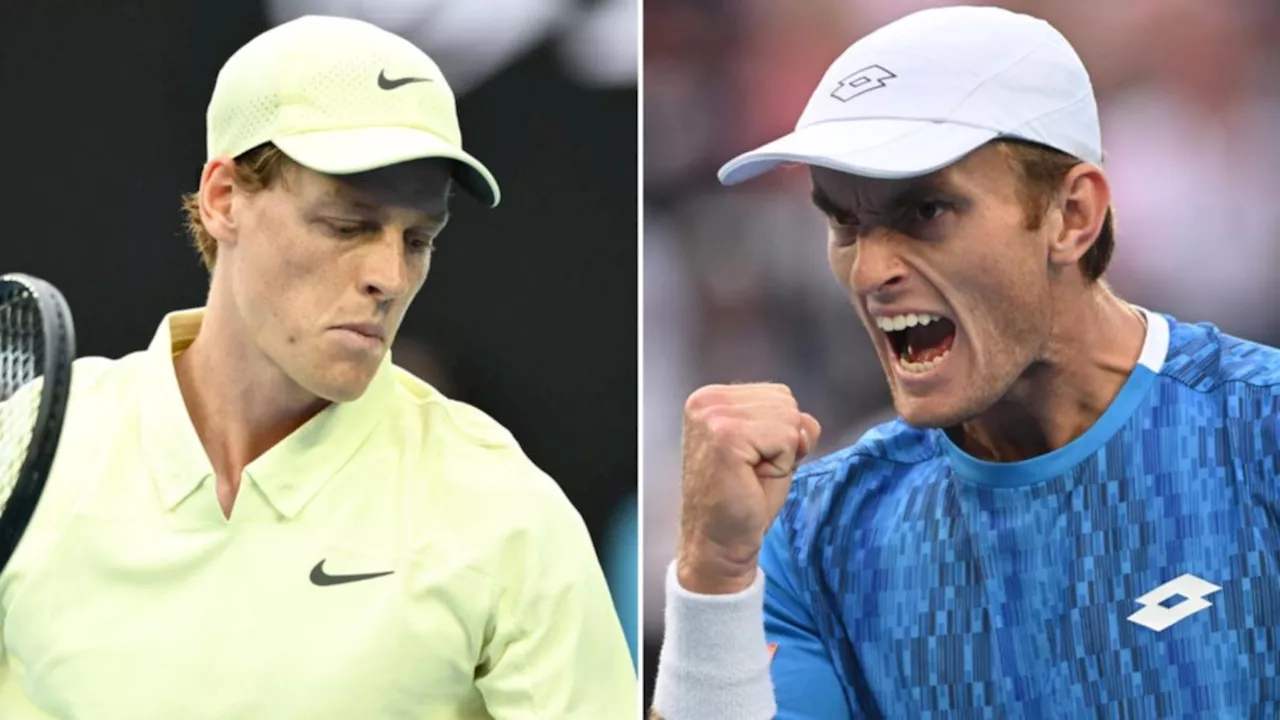 Australian Wildcard Tristan Schoolkate Stuns Jannik Sinner in Australian Open UpsetTristan Schoolkate, an unseeded Australian player, shocked the tennis world by defeating world No.1 Jannik Sinner in the second round of the Australian Open. Schoolkate took the first set, capitalizing on Sinner's struggles with the wind and showcasing remarkable composure.
Australian Wildcard Tristan Schoolkate Stuns Jannik Sinner in Australian Open UpsetTristan Schoolkate, an unseeded Australian player, shocked the tennis world by defeating world No.1 Jannik Sinner in the second round of the Australian Open. Schoolkate took the first set, capitalizing on Sinner's struggles with the wind and showcasing remarkable composure.
Read more »
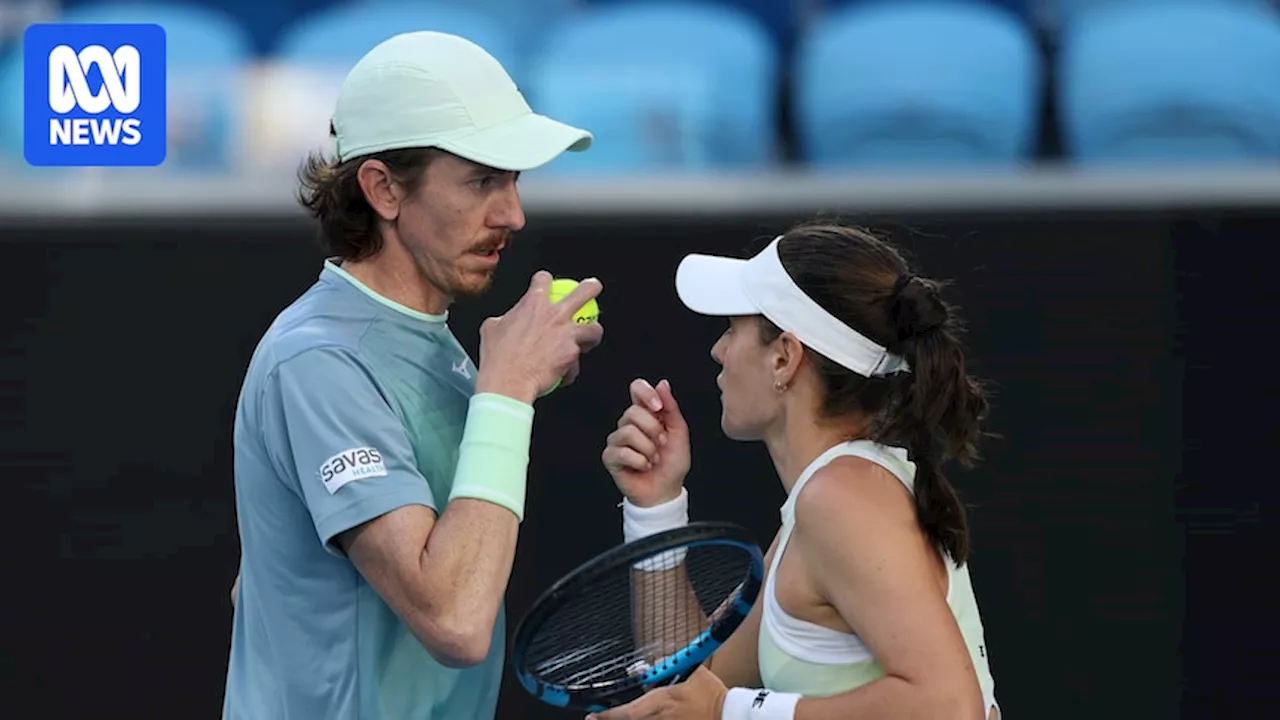 All-Australian Mixed Doubles Final Headlines Australian OpenTwo Australian duos, Kim Birrell and John-Patrick Smith, and Olivia Gadecki and John Peers, will compete for the mixed doubles title, marking the third all-Aussie victory in the Open Era. The day will also feature men's semifinals with Novak Djokovic facing Alexander Zverev and Jannik Sinner taking on Ben Shelton.
All-Australian Mixed Doubles Final Headlines Australian OpenTwo Australian duos, Kim Birrell and John-Patrick Smith, and Olivia Gadecki and John Peers, will compete for the mixed doubles title, marking the third all-Aussie victory in the Open Era. The day will also feature men's semifinals with Novak Djokovic facing Alexander Zverev and Jannik Sinner taking on Ben Shelton.
Read more »
